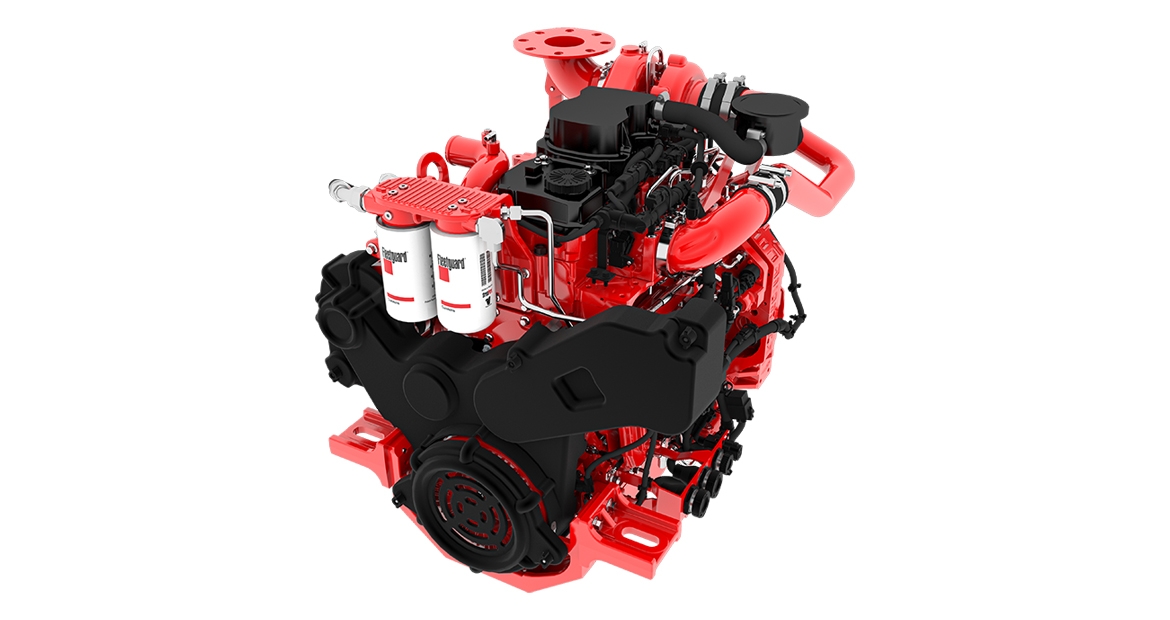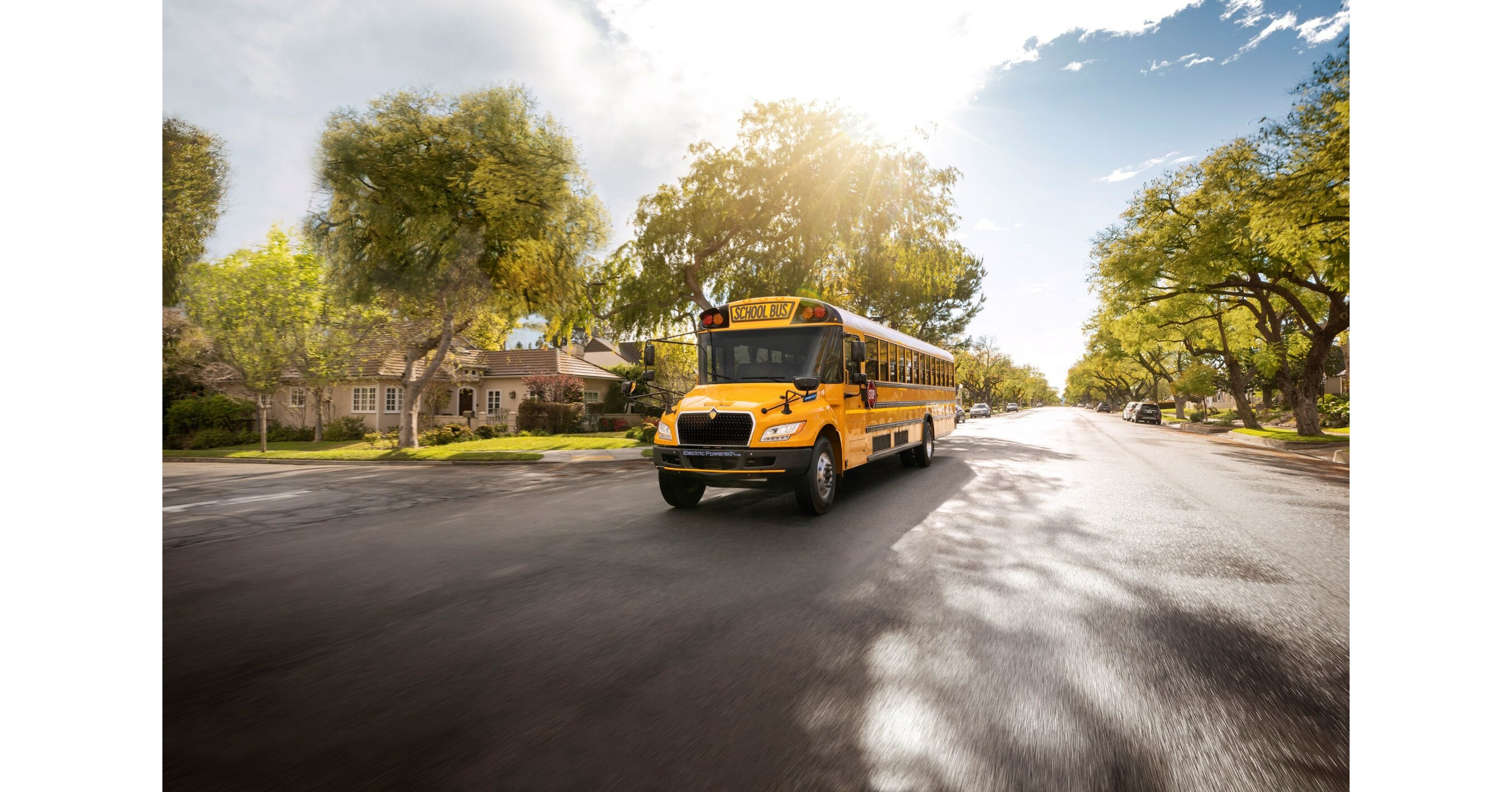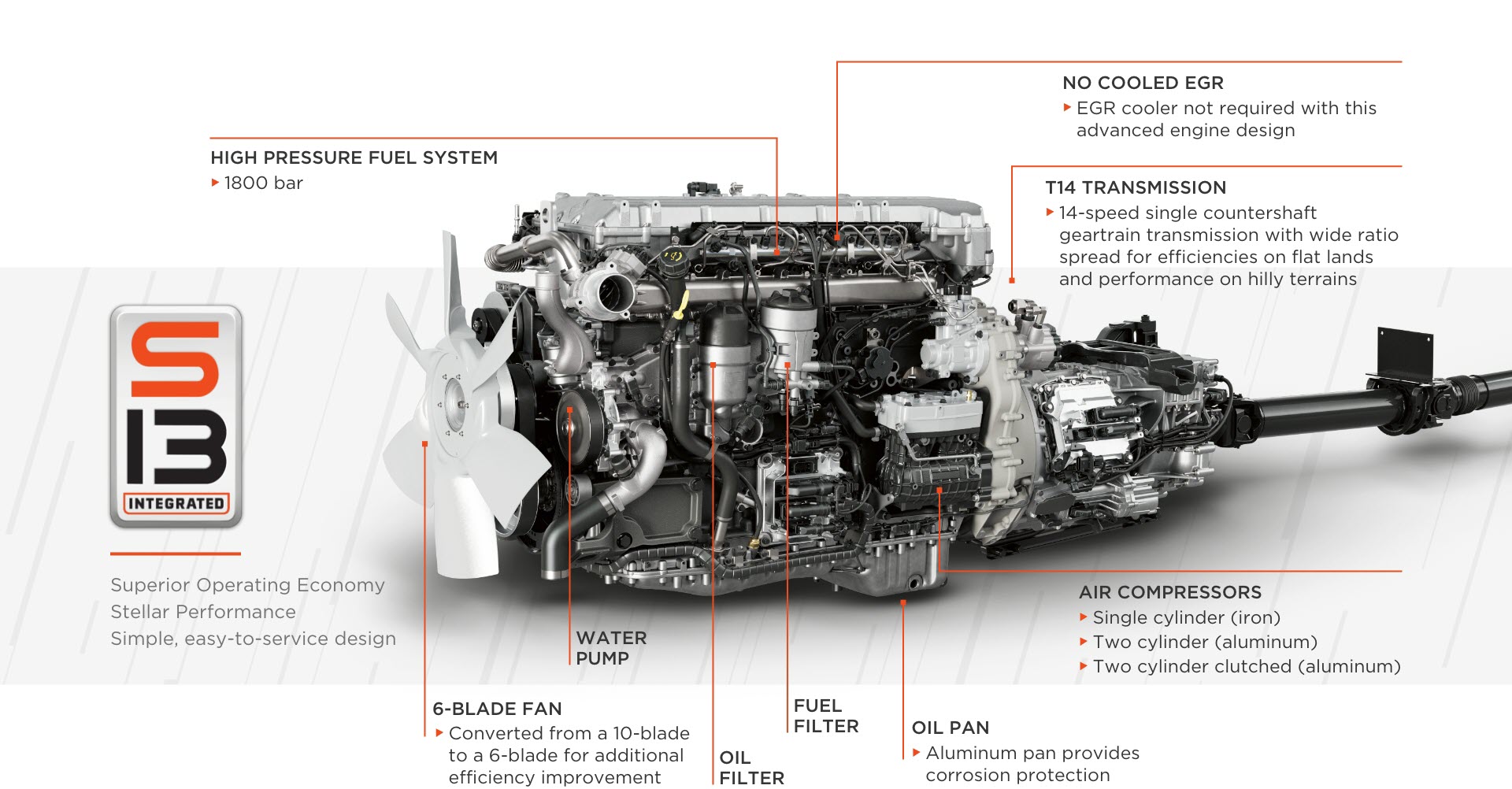As an Amazon Associate, I earn from qualifying purchases
When choosing the Best School Bus Engine, it’s important to consider factors such as durability, power output, and compatibility with the bus chassis. With the increasing focus on environmental sustainability, many school districts are also looking for engines that are eco-friendly and comply with emission regulations.
In our fast-paced world, finding a school bus engine that ensures safety, cost-effectiveness, and meets state regulations is paramount. This article explores the key elements to consider when selecting the best school bus engine for your fleet. From diesel to alternative fuel options, understanding the specific needs of your school district will aid in making an informed decision for the most suitable engine.

Credit: www.cummins.com
1. Importance Of Choosing The Best School Bus Engine
When it comes to ensuring the safety and efficiency of school transportation, choosing the best school bus engine is paramount. A reliable and high-performing engine can significantly impact the overall functionality and longevity of school buses, making it essential for schools and transportation providers to carefully consider their options.
1.1 Improves Performance
Installing the best school bus engine can improve performance in several ways. A powerful engine designed for school buses can enhance acceleration, making it easier for the bus to navigate various terrains and driving conditions. This ensures smoother and more responsive operation, contributing to a safer and more enjoyable riding experience for students.
1.2 Enhances Reliability
With a dependable engine, the reliability of school buses is greatly enhanced. A high-quality engine is less likely to experience unexpected breakdowns or malfunctions, reducing the risk of delays and disruptions in the transportation schedule. This ultimately contributes to the overall efficiency and effectiveness of school bus services, instilling confidence in both parents and school administrators.
2. Factors To Consider In Selecting The Best School Bus Engine
When it comes to selecting the best school bus engine, several important factors must be taken into consideration to ensure safety, efficiency, and environmental compliance. By carefully evaluating these factors, school districts and bus operators can make an informed decision that meets their specific needs and requirements.
2.1 Fuel Efficiency
Fuel efficiency is a crucial consideration when choosing a school bus engine. Engines with high fuel efficiency can help reduce operational costs, minimize environmental impact, and extend the range between refueling. Factors such as technology, design, and emissions control play a significant role in determining the fuel efficiency of an engine.
2.2 Power And Torque
The power and torque output of a school bus engine is essential for providing sufficient acceleration, climbing capability, and overall performance. Engines with adequate power and torque, especially at lower RPMs, can contribute to a smoother and more responsive driving experience, ensuring the safety of passengers and drivers alike.
2.3 Emissions Compliance
With a growing emphasis on environmental sustainability, selecting a school bus engine that complies with stringent emissions standards is paramount. Engines equipped with advanced emission control technologies, such as selective catalytic reduction (SCR) and diesel particulate filters (DPF), can help minimize harmful pollutants and contribute to cleaner air quality.
2.4 Maintenance And Service
Reliability, ease of maintenance, and availability of service are critical factors to consider when choosing a school bus engine. Engines with a robust service network, readily available replacement parts, and a track record of dependability can minimize downtime, reduce maintenance costs, and ensure seamless operation of the school bus fleet.
3. Top 5 School Bus Engines For Maximum Power And Reliability
These top 5 school bus engines provide maximum power and reliability for the best school bus engine performance. Explore the options for superior performance and dependability.
3.1 Engine A: Specifications And Features
Engine A is one of the most reliable and powerful options for school buses. With its impressive specifications and innovative features, it offers a seamless combination of performance and durability.
This engine is known for its exceptional power output, allowing school buses to tackle steep hills and challenging terrains with ease. It also ensures smooth acceleration and efficient fuel consumption, resulting in cost savings for school districts.
Additionally, Engine A incorporates advanced technology to enhance reliability. Its robust design minimizes maintenance requirements and extends the engine’s lifespan, preventing unexpected breakdowns and ensuring buses are always operational.
Moreover, Engine A is equipped with a sophisticated cooling system that effectively regulates the engine temperature, even in extreme conditions. This feature prevents overheating and enables the engine to perform optimally, especially during long-distance trips or in hot climates.
3.2 Engine B: Specifications And Features
Engine B is another top-notch choice for school bus engines, offering a combination of power, efficiency, and reliability. Designed to withstand heavy usage, it is specifically engineered for the demands of school transportation.
This engine boasts impressive torque, providing the necessary power for school buses to navigate through traffic and maintain speed on highways. It ensures a smooth and steady ride, ensuring the safety and comfort of students onboard.
Engine B also incorporates advanced emission control technologies, meeting stringent environmental standards while minimizing harmful pollutants emitted by the engine. This feature aligns with the commitment to sustainability and reduces the environmental impact of school bus operations.
In terms of reliability, Engine B is engineered with durable components that require minimal maintenance. Its robust construction ensures longevity, reducing the frequency of repairs and keeping school buses on the road for extended periods.
3.3 Engine C: Specifications And Features
Engine C is a high-performance option designed to provide maximum power and reliability for school buses. With its cutting-edge features and specifications, it proves to be an excellent choice for demanding transportation needs.
This engine delivers exceptional horsepower, enabling school buses to accelerate smoothly and handle heavy loads without compromising efficiency. It ensures a consistent level of power, even in challenging driving conditions.
Engine C also features advanced fuel injection technology, optimizing combustion and minimizing fuel consumption. This not only reduces operating costs but also contributes to a cleaner and more sustainable environment.
Furthermore, Engine C incorporates advanced diagnostic systems, allowing for quick troubleshooting and minimizing downtime. This feature ensures that any potential issues are detected early, preventing major breakdowns and maximizing bus availability.
3.4 Engine D: Specifications And Features
Engine D is a reliable and efficient choice for school bus engines, offering a range of specifications and features that emphasize both performance and longevity.
This engine is known for its exceptional fuel efficiency, making it an ideal choice for school districts seeking to reduce operating costs. It also complies with strict emission standards, minimizing the environmental impact of school bus operations.
Engine D’s power output is optimized for school transportation needs, providing sufficient torque to navigate congested roads and hilly terrains. It ensures a smooth and comfortable ride while maintaining fuel efficiency.
In terms of reliability, Engine D incorporates robust components designed to withstand heavy usage. Its low-maintenance design minimizes the need for frequent repairs, reducing downtime and ensuring that school buses are always available for transportation.
3.5 Engine E: Specifications And Features
Engine E is a top-of-the-line option for school bus engines, known for its outstanding performance and reliability. It offers an array of specifications and features that set it apart from other options in the market.
This engine delivers exceptional power, ensuring school buses have ample torque to conquer demanding terrains and maintain speed on highways. It provides a smooth and responsive driving experience, keeping students safe and comfortable.
Engine E also incorporates advanced emission control systems, significantly reducing pollutants emitted by the engine. This feature aligns with environmental regulations and promotes sustainability in school transportation.
Furthermore, Engine E is engineered with durable components that require minimal maintenance. Its robust design ensures longevity, allowing school buses to operate reliably for extended periods.

Credit: www.prnewswire.com
4. Case Studies: Success Stories Of Schools With The Best Bus Engines
4. Case Studies: Success Stories of Schools with the Best Bus Engines
4.1 School X: Improved Fuel Efficiency And Performance
School X is one of the many educational institutions that have reaped the benefits of investing in the best school bus engines. By doing so, they experienced a significant improvement in both fuel efficiency and overall performance. The robust engines installed in their buses ensured smoother and more efficient travel, allowing the school to save on fuel costs and reduce their carbon footprint. Moreover, the enhanced performance of these engines ensured timely arrival and departure of the buses, providing a reliable transportation service for students.
4.2 School Y: Enhanced Durability And Reduced Maintenance Costs
Another school that experienced remarkable success with the best bus engines is School Y. Their decision to opt for these engines proved to be a wise investment as they witnessed enhanced durability and reduced maintenance costs. The high-quality materials used in the construction of these engines ensured longevity, resulting in fewer breakdowns and repairs. As a result, School Y could allocate more funds toward other educational initiatives and programs instead of spending them on frequent engine repairs and replacements.
4.3 School Z: Minimized Emissions And Environmental Impact
School Z stands as a shining example of how investing in the best bus engines can contribute towards minimizing emissions and reducing their environmental impact. These engines are designed to comply with stringent emission standards and incorporate advanced technologies for cleaner burning fuel. By opting for these engines, School Z not only improved the air quality in their vicinity but also set an example for other schools to adopt environmentally friendly practices. Their commitment to reducing emissions contributes to creating a healthier and greener community.
5. Expert Recommendations For Choosing The Best School Bus Engine
Choosing the best school bus engine is a crucial decision that involves considering various factors such as performance, reliability, and efficiency. To assist you in making an informed decision, we have gathered expert recommendations to guide you in choosing the most suitable engine for your school bus. These recommendations include a thorough engine comparison and analysis, consulting with industry professionals, and taking into account long-term benefits and return on investment (ROI).
5.1 Engine Comparison And Analysis
When it comes to selecting the best school bus engine, conducting an in-depth engine comparison and analysis is imperative. This process enables you to evaluate different engine options, their specifications, features, and performance capabilities. Here are some important factors to consider during the engine comparison:
- Engine power and torque
- Fuel efficiency and emission standards compliance
- Engine maintenance requirements
- Warranty coverage and support
By carefully analyzing these aspects, you can determine which engine aligns best with your school bus requirements and operational needs. This analysis can aid in maximizing fuel economy, minimizing maintenance costs, and ensuring optimal performance for your school bus fleet.
5.2 Consulting With Industry Professionals
Consulting with industry professionals is an invaluable step in selecting the best school bus engine. These professionals possess extensive knowledge and experience in the field, allowing them to provide expert advice and recommendations tailored to your specific needs. Engaging in discussions with industry experts can offer valuable insights into:
- Latest engine technologies and advancements
- Reliability and durability of different engine models
- Compatibility with your school bus specifications and requirements
Their expertise will assist you in making an informed decision, ensuring that you select a reliable and efficient school bus engine that meets your criteria and offers long-term benefits.
5.3 Considering Long-term Benefits And Roi
Long-term benefits and return on investment (ROI) play a significant role in choosing the best school bus engine. While initial costs are important, it is equally crucial to assess the long-term advantages and savings that an engine can provide. Consider the following factors when evaluating the long-term benefits:
- Expected fuel efficiency and cost savings over the lifetime of the engine
- Maintenance and service requirements, including potential downtime
- Warranty coverage and manufacturer support
By calculating the expected return on investment, you can ensure that the chosen engine not only meets your performance needs but also proves to be economically beneficial in the long run. This assessment will help you make a well-rounded decision that considers both short-term requirements and long-term gains.

Credit: www.waterstruck.com
Frequently Asked Questions Of Best School Bus Engine
What Is The Best School Bus Engine?
The best school bus engine is one that combines fuel efficiency, reliability, and low emissions. It should also have ample power to handle the weight of a school bus and provide a smooth and comfortable ride for students.
What Are The Key Factors To Consider When Choosing A School Bus Engine?
When choosing a school bus engine, key factors to consider include fuel efficiency, emissions standards compliance, durability, power output, ease of maintenance, and availability of spare parts.
Is A Diesel Engine The Best Choice For A School Bus?
Diesel engines have long been the preferred choice for school buses due to their efficiency, durability, and torque. However, with advancements in technology, alternative fuel options such as propane and compressed natural gas (CNG) are also gaining popularity.
How Does A Diesel Engine Compare To Alternative Fuels For School Buses?
While diesel engines have long been the industry standard for school buses, alternative fuel options such as propane and CNG offer lower emissions, reduced maintenance costs, and in some cases, lower fuel costs. However, it’s important to consider factors such as infrastructure availability and the specific needs of your school district.
Conclusion
Selecting the best school bus engine is crucial for ensuring safety and efficiency in the transportation of students. By considering factors such as fuel efficiency, reliability, and emissions, school districts can make informed choices that benefit both the environment and their budget.
Investing in modern technology and engine design can lead to improved performance and reduced maintenance costs in the long run. Proper research and evaluation should be undertaken to match the specific needs and requirements of each school district.
As an Amazon Associate, I earn from qualifying purchases


